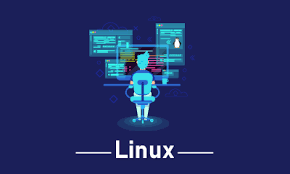
Linux Administration
Introduction to Linux: Understand the basics of Linux and its history. Linux File System Management: Learn about the Linux file system hierarchy and how to manage files and directories.
Linux Administration Course Content
Module 1: Introduction to Linux
Skills: None required
Topics:
History and evolution of Linux
Linux distributions and their differences
Basic Linux commands and shell scripting
Module 2: Linux File System Management
Skills: Basic understanding of file systems
Topics:
Understanding Linux file system hierarchy
Managing files and directories
Disk partitioning and formatting
Module 3: User and Group Management
Skills: Understanding of user and group concepts
Topics:
Creating and managing user accounts
Managing user permissions and access
Group administration in Linux
Module 4: System Administration Tasks
Skills: Basic understanding of system administration
Topics:
Managing processes and services
Configuring networking in Linux
Monitoring system performance
Module 5: Package Management
Skills: Basic understanding of software installation
Topics:
Package management with RPM and YUM
Package management with APT and DPKG
Managing software repositories
Module 6: Linux Shell Scripting
Skills: Basic understanding of scripting languages
Topics:
Shell scripting fundamentals
Writing and executing shell scripts
Automating system administration tasks with scripts
Module 7: System Security
Skills: Understanding of security concepts
Topics:
User authentication and password policies
Configuring firewall and security settings
Implementing file system security
Module 8: Backup and Recovery
Skills: Understanding of backup and recovery concepts
Topics:
Backup strategies and tools
Performing backups and restores
Disaster recovery planning
Module 9: Virtualization and Containers
Skills: Basic understanding of virtualization
Topics:
Introduction to virtualization and containers
Managing virtual machines with KVM
Containerization with Docker
Module 10: Linux Networking
Skills: Basic understanding of networking concepts
Topics:
Network configuration in Linux
Managing network interfaces and routing
Network troubleshooting tools and techniques
Module 11: Advanced Linux Administration
Skills: Intermediate Linux administration skills
Topics:
Kernel management and tuning
Managing storage with LVM
Performance tuning and optimization
Module 12: Linux Server Deployment and Automation
Skills: Advanced Linux administration skills
Topics:
Server deployment strategies
Configuration management with Ansible
Automating tasks with cron jobs and scripts
Linux Administration Learning Roadmap
Introduction to Linux: Understand the basics of Linux and its history.
Linux File System Management: Learn about the Linux file system hierarchy and how to manage files and directories.
User and Group Management: Understand how to create and manage user accounts and groups.
System Administration Tasks: Learn how to manage processes, services, and networking in Linux.
Package Management: Understand how to manage software packages and repositories in Linux.
Linux Shell Scripting: Learn how to write and execute shell scripts to automate tasks.
System Security: Understand how to implement security measures in Linux.
Backup and Recovery: Learn about backup strategies and tools in Linux.
Virtualization and Containers: Understand the basics of virtualization and containerization in Linux.
Linux Networking: Learn about network configuration and troubleshooting in Linux.
Advanced Linux Administration: Explore advanced topics such as kernel management and performance tuning.
Linux Server Deployment and Automation: Learn how to deploy servers and automate tasks using configuration management tools.
This roadmap and course content will help you build a strong foundation in Linux Administration and prepare you for a career as a Linux Administrator.
Enroll For Course Now